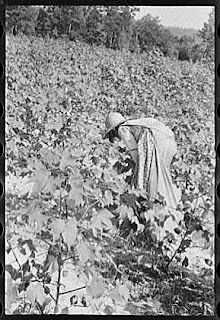 |
| Mr. and Mrs. Orville Bean |
 |
| Wiley Hopkins Bean (nee "Beene") (1831-1902) |
Bean was born in 1888, in Mississippi, to Wiley Hopkins Bean (1831-1902) and Mary Wood (1854-1922) . Wiley Hopkins Bean (nee "Beene") was born in Georgia, but his family moved to Mississippi when he was young, and settled in Itawamba County to farm. By "farm," it is clear from Wiley Bean's Last Will and Testament, this means to own land. The following is at the end of his Will:
(The name "Orville Stone Beene" is emphasized by me in bold typeface.)To my beloved wife Mary Roena Beene and our children, Dewitt Beene, Orville Stone Beene, Archie Tracey Beene, Nolia Roena Beene and Wiley Holder Beene, after all my just debts are paid I give and bequeath all the remainder or balance of my property, including all livestock of every kind and description, all crops and provisions, tools, vehicles, money notes, accounts and debts that may be due me.Twelveth- to my beloved wife Mary Roena Beene and our five children named in the eleventh article just above, I give and bequeathe the following real property, viz, The North half (N 1/2) of Section Thirteen (13), Township nine (9) of range seven (7) in Itawamba County, Mississippi.Thirteenth I hereby nominate and appoint Mary Roena Beene my executrix and my son Lonnie Hopkins Beene my executor of this my Last Will and Testament.Witness this my signature this day of Feb 20 1900 1899 (In the original, 1900 is marked through and 1899 written above)Signed Wiley H BeeneWitnessed byW. B. Brown, J. Y. Cunningham and Harlem Beene.
 |
| Wiley H. Bean Last Will and Testament Page 1 |
It is clear that Bean inherited significant property and land, and like his father, was indeed a powerful man in Northeast Mississippi. Since they were farmers, they owned significant plots of farmland in Itawamba County, Mississippi.
 |
| Wiley H. Bean Last Will and Testament Page 2 |
After his sophomore year in high school, Orville Bean did not further his education. According the 1940 census, he was a "farm operator," and was entirely self-employed. Although he told the census he worked 40 hours per week, he listed his income as "0." Bean lived in Lee County, Mississippi with his wife Agnes, ten years his junior.They had a daughter named Oleta. Bean had also been married to Nannie Mae Sheffield.
 |
| Orville Stone Bean, circa 1935 Back Row, Right The year Elvis Presley was born |
As for his family, he came from "solid" yet rural roots. When married with his own family, he lived in the humble circumstances of many Mississippi landowners. His daughter became a school teacher, ironically later helping the Presleys' only child with his singing career, early on. Oleta (Bean) Grimes appears to have been a lovely person, based on much available evidence.
It is her father, though, who still remains something of a mystery. Land was power in the Mississippi of the early 20th century, and I am following, not the money, but the dirt. The dirt he owned, and upon which poor people both lived and worked.
Don't touch that dial; we'll be back with the full story of East Tupelo, Orville Bean's history of power over some of the weakest people in Lee County, and why he was able to change Elvis Presley's very young life forever.
Meanwhile, I leave you with this music.
References: Elaine Dundy, Elvis and Gladys. Macmillan, 1985. First Edition. William Balfour Ruff, Oral history with Mr. Balfour William Ruff, as interviewed by Kathryn Stephens. F341.5 .M57 vol. 746, pt. 2. University of Southern Mississippi. Center for Oral History and Cultural Heritage, 1999-11-12. and University of Southern Mississippi Libraries. (electronic version), 2002-09-25 (digital reproduction). http://www.lib.usm.edu/legacy/spcol/coh/cohruffb.html Mike Freeman, "Mrs. Oleta Grimes" from My Written Stuff, 24, January, 2012. http://michaelwfreem.blogspot.com/2012/01/founder-of-elvis-presley-birthplace.html Department of Commerce, Bureau of the Census. 1940. Lee County, Mississippi. Beene/Bean photos made public on the Internet's World Wide Web by John Griggs39 of ancestry.com. Ancestry.com. Public Member Photos & Scanned Documents [database on-line]. Provo, UT, USA: Ancestry.com Operations Inc, 2006. Original data: Family tree photos submitted by Ancestry members. Note: Orville Stone Bean is a public historical figure, and these public photos are reproduced here under the fair use provisions of U.S. Copyright law for educational purposes.
©Robin Markowitz, 2013. All Rights Reserved.

Don't touch that dial; we'll be back with the full story of East Tupelo, Orville Bean's history of power over some of the weakest people in Lee County, and why he was able to change Elvis Presley's very young life forever.
Meanwhile, I leave you with this music.
References: Elaine Dundy, Elvis and Gladys. Macmillan, 1985. First Edition. William Balfour Ruff, Oral history with Mr. Balfour William Ruff, as interviewed by Kathryn Stephens. F341.5 .M57 vol. 746, pt. 2. University of Southern Mississippi. Center for Oral History and Cultural Heritage, 1999-11-12. and University of Southern Mississippi Libraries. (electronic version), 2002-09-25 (digital reproduction). http://www.lib.usm.edu/legacy/spcol/coh/cohruffb.html Mike Freeman, "Mrs. Oleta Grimes" from My Written Stuff, 24, January, 2012. http://michaelwfreem.blogspot.com/2012/01/founder-of-elvis-presley-birthplace.html Department of Commerce, Bureau of the Census. 1940. Lee County, Mississippi. Beene/Bean photos made public on the Internet's World Wide Web by John Griggs39 of ancestry.com. Ancestry.com. Public Member Photos & Scanned Documents [database on-line]. Provo, UT, USA: Ancestry.com Operations Inc, 2006. Original data: Family tree photos submitted by Ancestry members. Note: Orville Stone Bean is a public historical figure, and these public photos are reproduced here under the fair use provisions of U.S. Copyright law for educational purposes.
©Robin Markowitz, 2013. All Rights Reserved.








